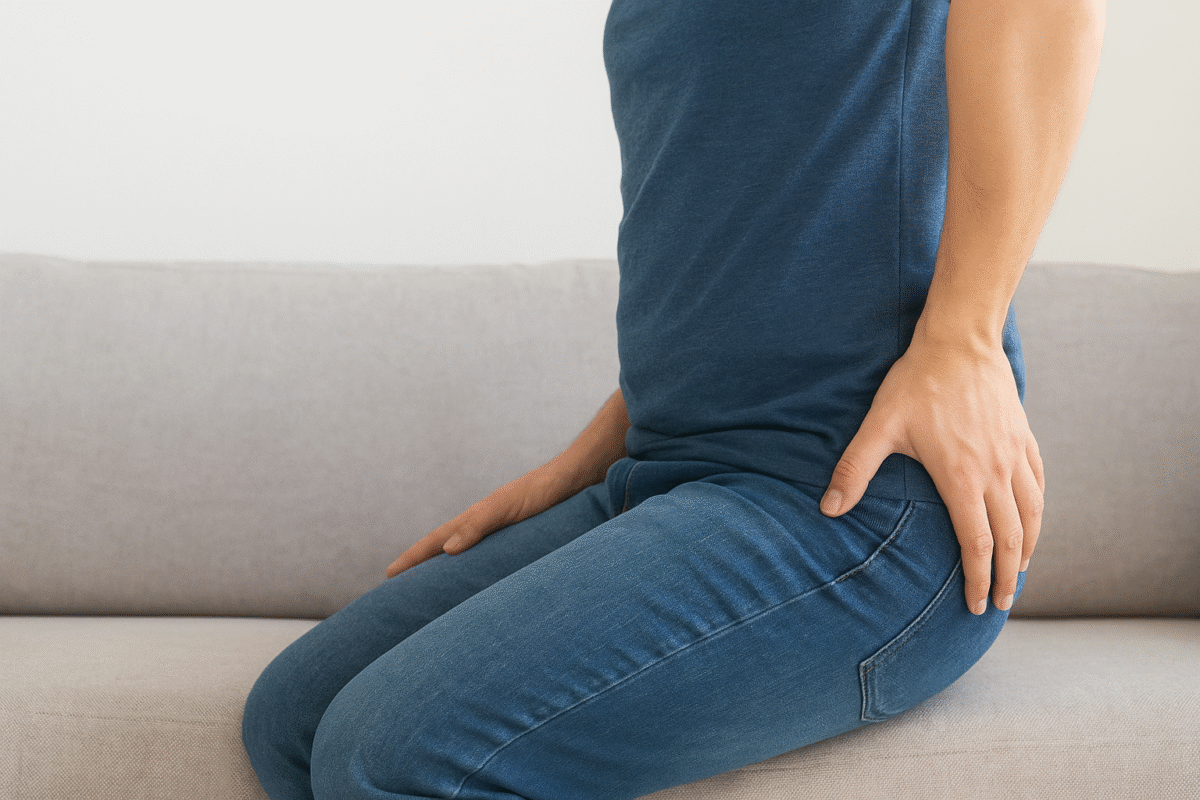The Latest Methods for Treating Hemorrhoids and Preventing Their Complications

What Are Hemorrhoids?
Hemorrhoids are swollen veins in the rectal or anal area and are among the most common anorectal conditions affecting both men and women. Patients often experience pain, itching, and mild bleeding after bowel movements, which can impact their daily quality of life.
Thanks to medical advancements, the treatment of hemorrhoids now focuses on addressing the root cause and preventing recurrence rather than merely relieving symptoms. You can learn more about their symptoms by visiting the Hemorrhoids, Fistula, and Anal Fissure page.
Complications of Untreated Hemorrhoids
Failing to treat hemorrhoids on time may lead to several unpleasant complications, including:
- Thrombosed Hemorrhoids: When a blood clot forms within an external hemorrhoid, it causes severe pain and noticeable swelling.
- Prolapsed Hemorrhoids: Internal hemorrhoids that permanently protrude outside the anal opening.
- Chronic Bleeding: Persistent bleeding that may lead to anemia due to continuous blood loss.
- Inflammation or Ulceration: Caused by friction, irritation, or poor hygiene.
- Skin Tags: Small residual folds of skin that remain after hemorrhoid healing, which may cause discomfort or hygiene difficulties.
How Are Hemorrhoids Diagnosed?
Accurate diagnosis is essential for determining the grade of hemorrhoids and selecting the most appropriate treatment. Early diagnosis and proper management help prevent complications and restore comfort more rapidly.
A comprehensive clinical evaluation is typically performed to ensure symptoms are not due to other conditions, such as anal fissures or colorectal disorders. Diagnostic steps may include:
- External Examination: To assess for external hemorrhoids, swelling, or fissures.
- Digital Rectal Examination (DRE): To detect internal swelling or palpable masses.
- Anoscopy or Proctoscopy: For detailed inspection of internal hemorrhoids.
- Colonoscopy: Recommended in cases of chronic bleeding or for patients over 40 to rule out polyps or tumors.
Preventive Measures for Hemorrhoids
Prevention begins with adopting healthy daily habits that improve digestive health and reduce the risk of developing hemorrhoids:
- Consume a fiber-rich diet that includes whole grains, vegetables, and fruits.
- Stay well-hydrated to keep stools soft and prevent straining.
- Engage in regular physical activity to stimulate bowel movement.
- Avoid prolonged sitting, especially on the toilet.
- Maintain gentle anal hygiene to minimize irritation.
The Latest Hemorrhoid Treatments and Recovery Period
We provide the most up-to-date medical techniques for hemorrhoid management, tailored to each patient’s condition:
- Non-Surgical Treatments
In early stages, symptoms can often be controlled with minimally invasive procedures that require no surgery, such as:
- Rubber Band Ligation: A small band is placed around the base of the hemorrhoid to cut off blood flow, causing it to shrink gradually.
- Sclerotherapy: Injection of a special solution that causes the hemorrhoid to shrink and scar.
- Infrared Coagulation (IRC): Use of heat energy to reduce internal hemorrhoid size.
These procedures are quick, effective, and typically performed without anesthesia, allowing patients to resume normal activities the same day.
- Advanced Laser and Surgical Techniques
For advanced or recurrent cases, more sophisticated procedures are used:
- Laser Hemorrhoid Treatment: Laser energy precisely targets swollen tissue, minimizing pain, bleeding, and the need for recovery time.
- Stapled Hemorrhoidopexy: Repositions prolapsed tissue and reduces blood flow to hemorrhoids, promoting faster healing.
- Conventional Hemorrhoidectomy: The preferred option for very large or severe hemorrhoids.
Recovery and Post-Treatment Care
Following treatment, it is essential to adhere to certain guidelines to ensure smooth recovery and prevent recurrence:
- Continue a high-fiber diet and maintain proper hydration.
- Avoid heavy lifting during the healing period.
- Keep the area clean and dry to prevent infection.
- With proper care, most patients recover comfortably within a short period and can return to their normal activities without complications.
Consulting Dr. Ali Shafik
Medical consultation is strongly recommended if you experience persistent bleeding, severe pain, or tissue protrusion, as these may indicate advanced hemorrhoids or another anorectal condition requiring professional evaluation.
In such cases, it is best to consult an experienced colorectal specialist such as Dr. Ali Shafik, who provides accurate diagnosis and advanced hemorrhoid treatment in Egypt using the latest technologies available at Ahmed Shafik Hospital.



